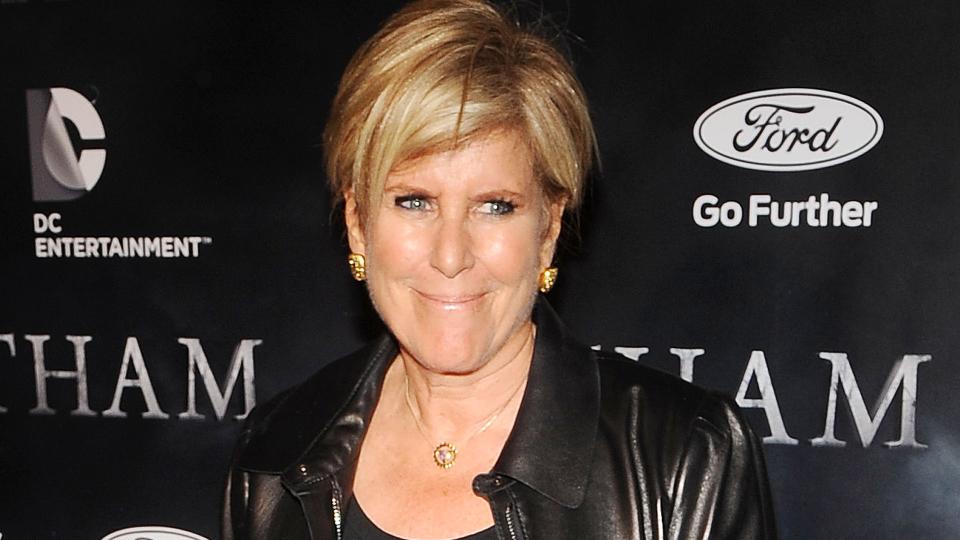Suze Orman: What a Fed Rate Cut Means for Your Finances

Since the onset of the COVID-19 pandemic, there’s been rampant 40-year record high inflation that is just now starting to cool down. As inflation is improving, the Federal Reserve is taking action.
On September 18, the Federal Reserve cut the federal funds rate by 50 basis points to a new target range of 4.75% to 5.00%. This was the first rate cut since 2020. The aggressive move is aimed at preventing an increase in unemployment, lowering borrowing costs, strengthening the economy and ultimately getting the inflation rate to the Fed’s 2% objective.
This new federal rate cut will likely lower interest rates on mortgages, auto loans and credit cards, as well as on savings accounts and certificates of deposit. In a recent blog post, money expert Suze Orman discussed the impacts of this rate cut and what it could mean for your finances.
Read More: 6 Ways To Lower Your Student Loan Debt Interest Rate
For You: 7 Reasons a Financial Advisor Can Grow Your Wealth in 2024
Here are three things to keep in mind now that the Federal Reserve has cut interest rates, according to Suze Orman.
Earning passive income doesn't need to be difficult. You can start this week.
Expect Interest Rates To Continue Falling Into 2025
Orman highlighted that as long as inflation doesn’t go up again, it’s likely that the Federal Reserve will keep reducing the federal funds rate into 2025. How much more? According to Orman, that will depend on what’s going on in the economy. However, she said that the federal funds rate may drop to the 4% range in the coming year.
Rates continuing to fall could impact your investments, loans and more, so it’s important to be aware of what’s going on. “Whether you’re contemplating changes to your portfolio or looking to adjust your wealth or estate plan in anticipation of lower interest rates, it’s important to consult with your financial and tax professionals to ensure that whatever move you make is something that will potentially help you achieve your long-term goals,” according to Fidelity.
Explore More: I’m a Bank Teller: 4 Reasons You Should Withdraw Your Savings Right Now
Continue To Focus On Killing Your Debt
Orman explained that you need to stay focused on paying down and eliminating your credit card debt as soon as possible. While the average credit card interest rate may come down as the federal funds rate falls, it is still likely going to be a high rate to carry with your debt. “It’s likely to merely fall from crazy high to just a little less crazy,” Orman said.
So even with the rate cut, credit card rates will likely remain elevated enough to have a significant impact on your debt. As CBS News stated, “Even if credit card companies do decide to lower their rates in response to the Fed’s move, the process is likely to be slow and the impact is likely to be minimal.”
Ultimately, you shouldn’t feel comfortable holding on to your credit card debt for more time. Credit card debt eats a hole in your wallet and prevents you from saving money and investing in the long term.
Don’t Start Borrowing Just Because Rates Are Falling
It might seem like a good idea to take out a loan and assume more debt since it’ll become cheaper to take on debt as interest rates fall, Orman explained. But it’s important you don’t fall into that trap.
“The question you should always ask with any decision that involves borrowing is whether you are purchasing a need or a want. If it is a need, then a lower interest rate helps,” Orman said. “But please don’t use lower interest rates as an excuse or rationale for borrowing for a want.”
You don’t want to take on more debt if you already have a lot of other debt just because rates are dropping, and you certainly never want to live above your means.
More From GOBankingRates
17 Walmart Items Retirees Should Stock Up on Before Winter Hits
5 Housing Markets That Will Plummet in Value Before the End of 2025
Here's How To Become a Real Estate Investor for Just $1K Using This Bezos-Backed Startup
This article originally appeared on GOBankingRates.com: Suze Orman: What a Fed Rate Cut Means for Your Finances